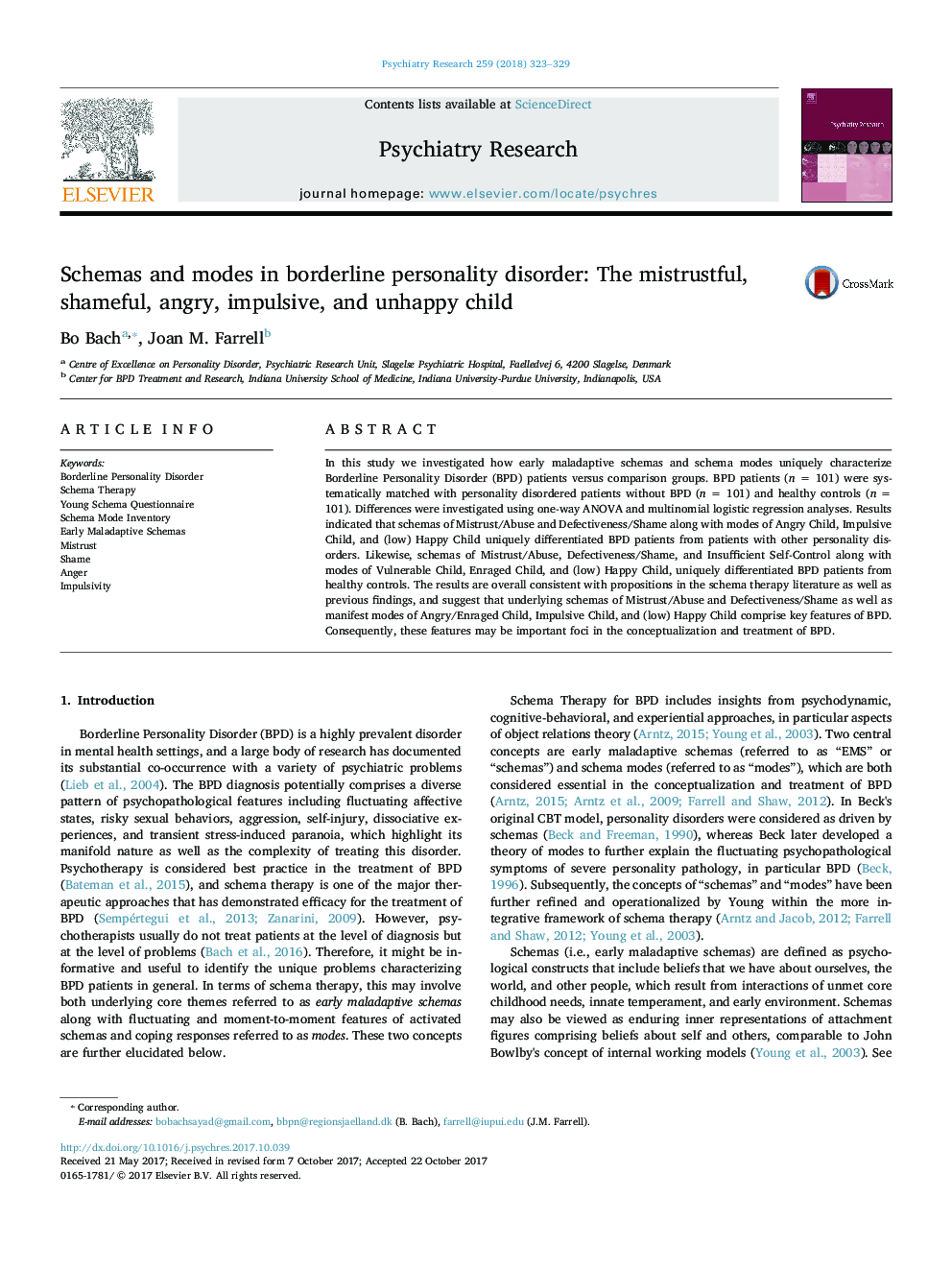| Article ID | Journal | Published Year | Pages | File Type |
|---|---|---|---|---|
| 6811996 | Psychiatry Research | 2018 | 7 Pages |
Abstract
In this study we investigated how early maladaptive schemas and schema modes uniquely characterize Borderline Personality Disorder (BPD) patients versus comparison groups. BPD patients (n = 101) were systematically matched with personality disordered patients without BPD (n = 101) and healthy controls (n = 101). Differences were investigated using one-way ANOVA and multinomial logistic regression analyses. Results indicated that schemas of Mistrust/Abuse and Defectiveness/Shame along with modes of Angry Child, Impulsive Child, and (low) Happy Child uniquely differentiated BPD patients from patients with other personality disorders. Likewise, schemas of Mistrust/Abuse, Defectiveness/Shame, and Insufficient Self-Control along with modes of Vulnerable Child, Enraged Child, and (low) Happy Child, uniquely differentiated BPD patients from healthy controls. The results are overall consistent with propositions in the schema therapy literature as well as previous findings, and suggest that underlying schemas of Mistrust/Abuse and Defectiveness/Shame as well as manifest modes of Angry/Enraged Child, Impulsive Child, and (low) Happy Child comprise key features of BPD. Consequently, these features may be important foci in the conceptualization and treatment of BPD.
Keywords
Related Topics
Life Sciences
Neuroscience
Biological Psychiatry
Authors
Bo Bach, Joan M. Farrell,
